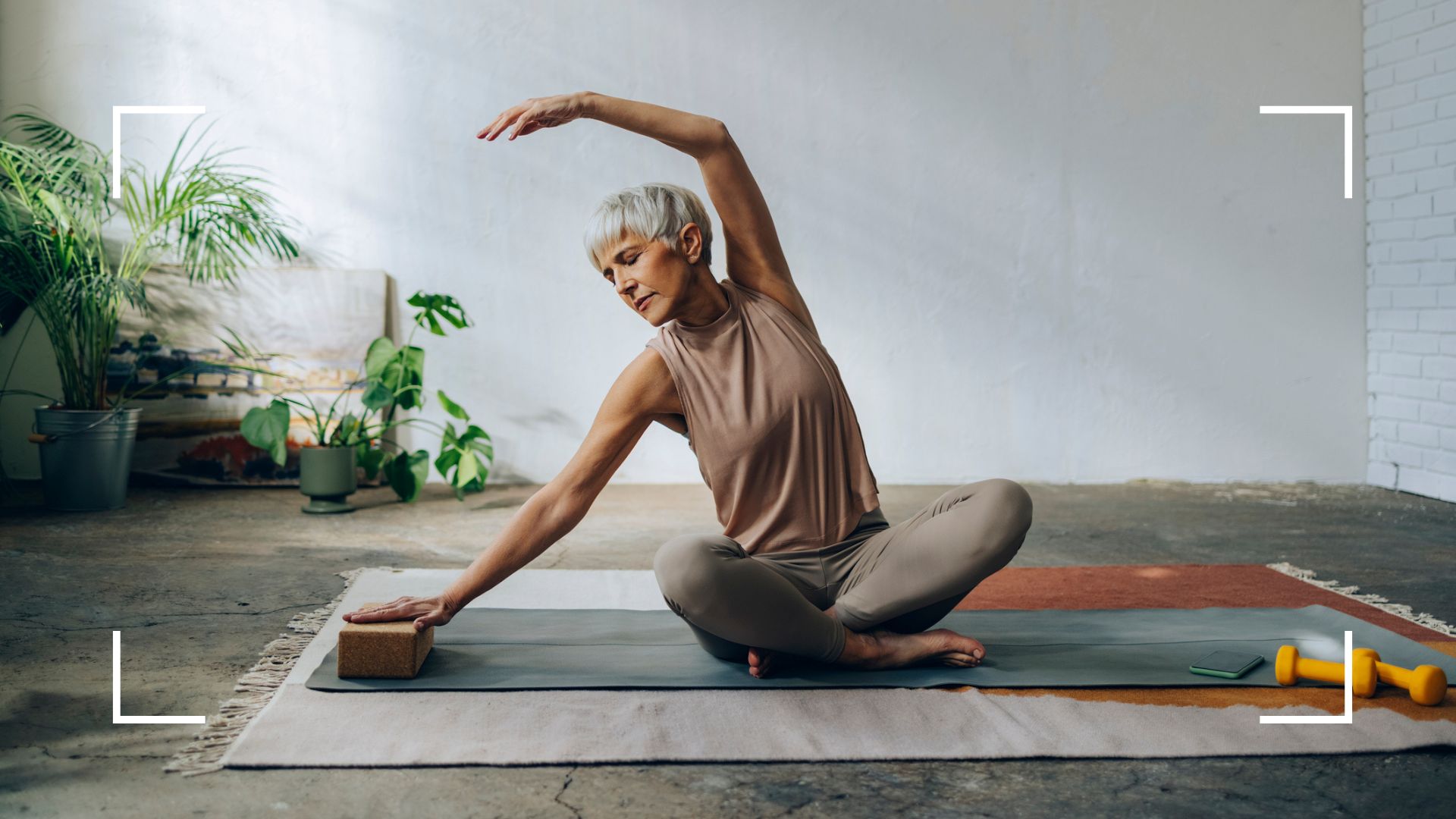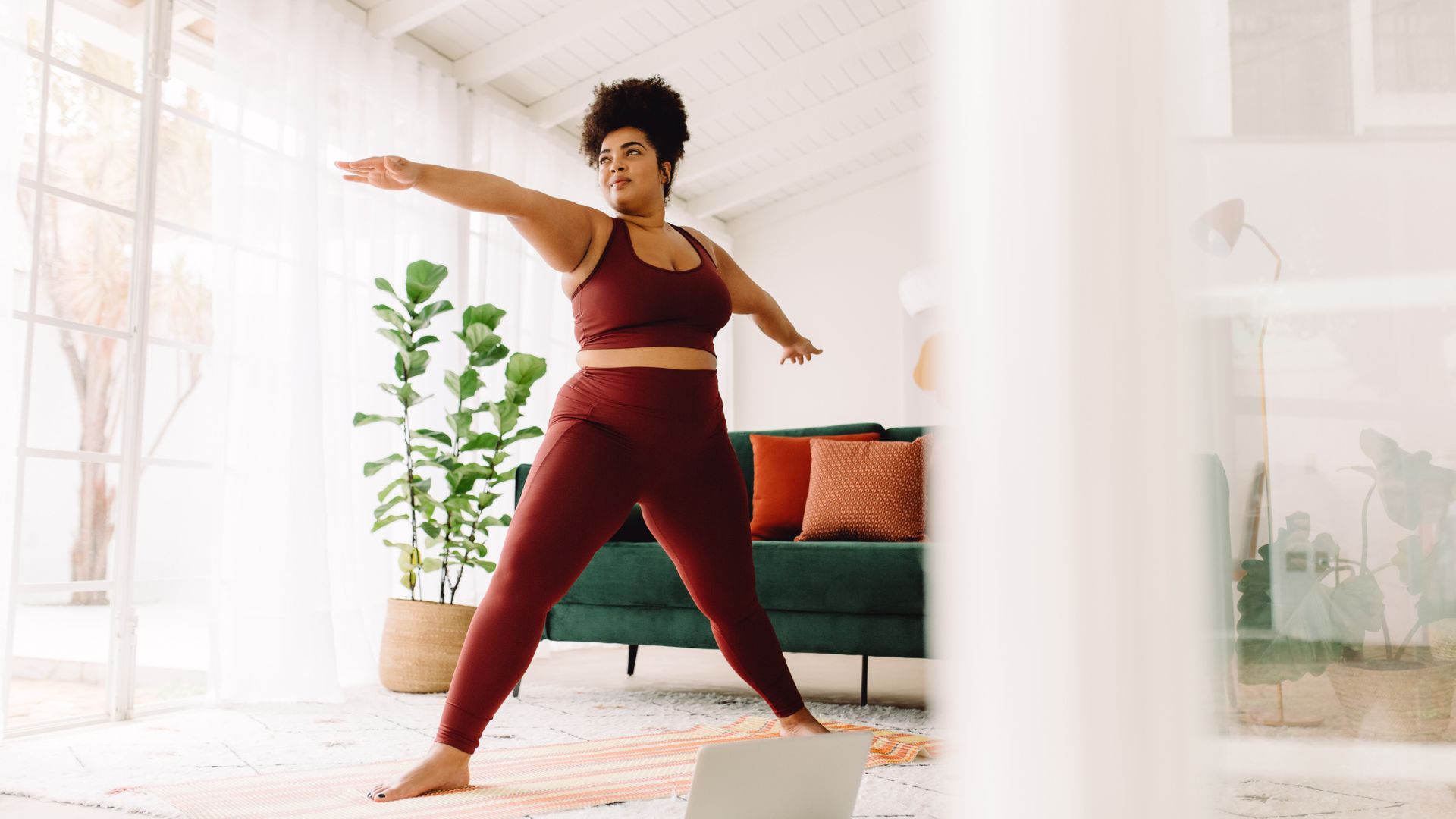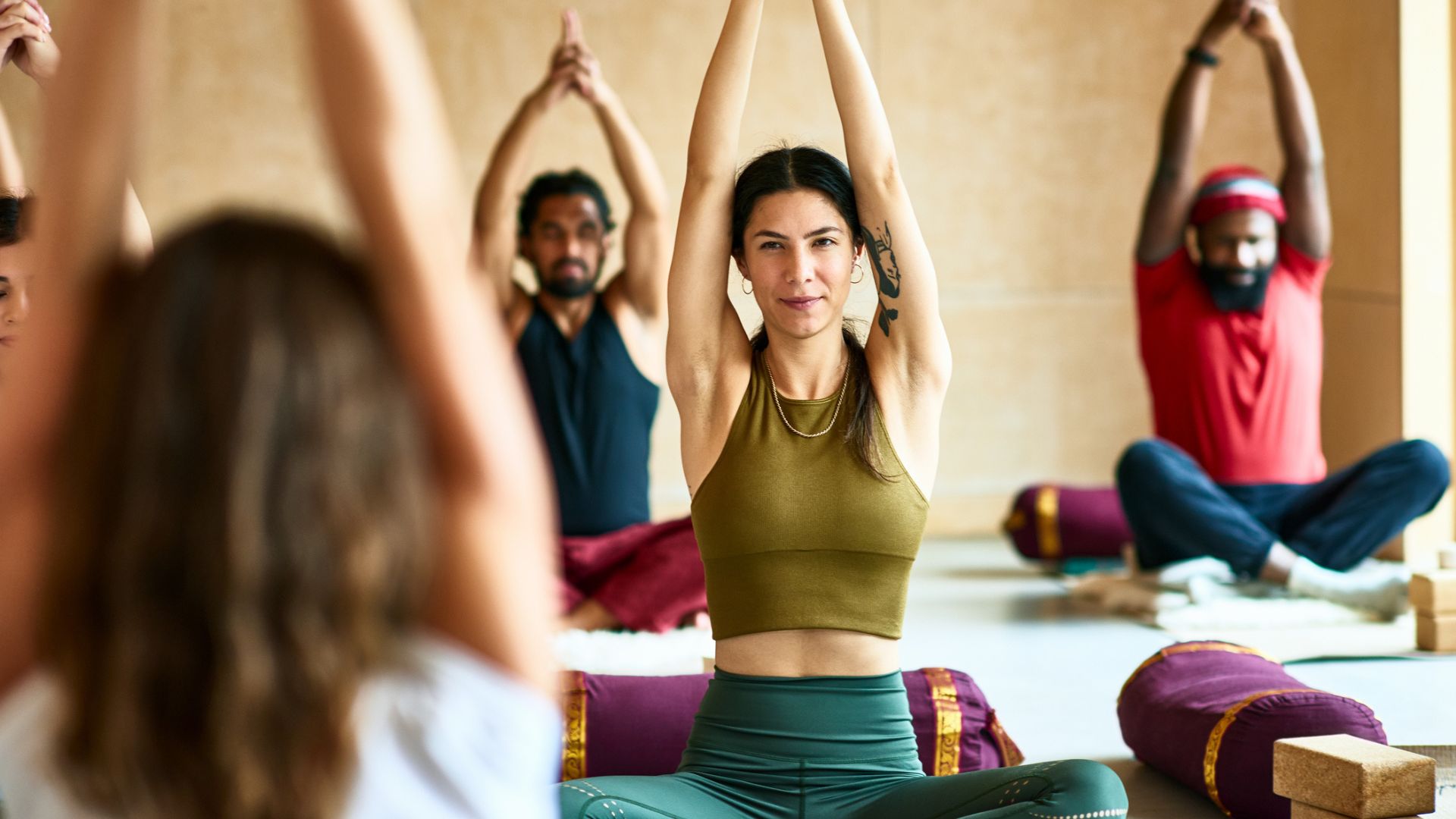How often should you do yoga? Instructors reveal the best practice for the best results
The dilemma of how often should you do yoga might not have crossed your mind before, but a regular stretch session is well worth your while...


The question of how often should you do yoga is a common one. We know that the practice can help you reap a multitude of rewards and stretch out your body. Indeed, a regular flow can boost both your mental and physical wellbeing - from easing stress and anxiety to improving lower back pain. While fitting a session in between cardio and weights can be difficult, it's well worth your time to make it a consistent part of your weekly workout routine.
However, the frequency with which you should practice yoga will depend on which particular health goal you have in mind. Are you keen to increase flexibility or balance? Do you want to build strength? Perhaps you are aiming to improve your mental health. These varying (but all very valid) aims will require you to take a slightly different approach every time you step onto your mat.
So, whether you are looking to improve your practice or are doing yoga for beginners, we've got you covered. Here, woman&home has called on top instructors to take you - step by step - through what to consider before deciding how often to practice. They'll also share their expertise on which yoga forms or poses are best to focus on depending on what you are trying to achieve. All that's left to do is to carve out the time in your diary and step onto one of the best yoga mats to give it a go...
How often should you do yoga?
1. How often should you do yoga...for flexibility?
How often: 2 - 5 times a week
"Yoga can really help with improving your flexibility and making your body more supple," explains Danielle Wills, a certified yoga and meditation instructor. "In restorative, nidra yoga, and yin yoga, you hold different positions for an increased period of time, allowing your muscles to release into a much deeper stretch." If you're holding a pose for a while, then one of the best thick yoga mats may feel more comfortable beneath your body. She recommends choosing a handful of positions to practice two to five times per week to improve flexibility - but there's no need to do an hour at a time, just stay consistent.
Stuck on which poses to focus on? "Most yoga styles have a good number of poses and movements that encourage a more flexible body - think downward dog, upward dog, twists, and forward bends," notes yoga instructor Scarlett Woodford, who encourages you to listen to your body and remember that what might work for the person on that mat next to you might not feel right for you. "We are all built completely differently - for example, in our hips, hamstrings, and back - and a pose should feel strong but shouldn't tip you into pain. It’s good to start slow and build at your own pace."

2. How often should you do yoga...for strength?
How often: 2 - 3 times a week
Sign up for the woman&home newsletter
Sign up to our free daily email for the latest royal and entertainment news, interesting opinion, expert advice on styling and beauty trends, and no-nonsense guides to the health and wellness questions you want answered.
Getting toned isn't all about strength training. "Yoga also helps with resistance training, especially if you practice vinyasa, power, or rocket yoga," notes Wills, who also works with the audio-based fitness app WithU Training. "Yoga asana is a strength-based, full-body practice. Using just your own body weight to flow through your practice will result in longer and leaner muscles."
She recommends finding your level of flow and performing it two to three times in your weekly routine - perhaps alongside other resistance workouts (such as Pilates for strength training or circuit training).
Woodford recommends looking out for particular yoga classes if you want to get strong and toned. "Pick a class or teacher who focuses on conditioning movements - like unilateral exercises, squats, and strengthening formats as well as longer holds, rather than super deep stretches," she explains.
3. How often should you do yoga...for balance?
How often: At least once a week
"The art of yoga is beneficial in helping with focus, coordination, and balance as a result," says Wills. "As you are working on your movement, mastering transitions, and developing strength, your sense of balance can be improved as you align your body and give attention to certain body parts. Better balance will come as you progress in yoga, so make sure you keep it up on a weekly basis to see results."
But be sure to take your time with this and don't give up if you start off wobbly on the mat. "If you feel frustrated about not being able to stand on one leg, just know that there are several factors at play. Balance has a lot to do with the eyes and ears, as well as the body," adds Woodford. "In general, when practiced regularly, standing balances such as tree pose, warrior three, lunges and dancer’s pose can be great for improving strength, muscle memory and therefore balance over time." Once in position, you could tune into some guided meditation to help you stay in the zone.

4. How often should you do yoga...for getting fit?
How often: 3 - 4 times a week
There is nothing greater for motivation than feeling your fitness levels improve. As part of an increasingly regular and varied exercise routine, which also may include increasing how often you do cardio and strength exercise, yoga can be very beneficial in helping you achieve this health goal. "Many believe that yoga is 'just for relaxation and stretching' but many forms of yoga asana can indeed improve fitness since it helps to increase lung capacity," points out Wills.
Not sure where to start? Try the basics of doing yoga as a workout, suggests Woodford. "If you’re looking to break a sweat, choose classes titled vinyasa, ashtanga, rocket, and power," she says. "These dynamic styles will get the heartbeat racing and blood pumping, along with the usual flexibility and strength benefits."
Although, make sure you mix up how you move. Wills adds, "If you are looking to improve your fitness levels overall, I'd advise combining your yoga flow with HIIT or other aerobic exercise and weight training three to four times per week."
5. How often should you do yoga...for mental wellbeing?
How often: Daily, if it feels good
"Yoga is one of the best tools that can help you not just survive but thrive," notes Wills. "Most of us feel stress at quite specific times of the day - first thing in the morning, when the day looms in front of us, and last thing at night, when we worry about all that we haven’t yet done. Slotting a few yoga moves or a short practice into these times of day is one of the best ways to take back your own power and improve your mental wellbeing."
How exactly can it help? "Yoga teaches you movements that help you physically release tension in your body," explains Wills. "It also instills in you breath practices that help you return to calm by tapping into the part of your physiology called your parasympathetic system."
Taking some time to stretch on the mat in the morning or even just a quiet moment before bed can do wonders. Many of the best yoga apps and mindfulness platforms can help you find routines and practices that slot easily into your daily schedule to help create a sense of calm.
However, if you are struggling with your mental health and are concerned, then it is important to seek the guidance of a health professional.
Is it OK to do yoga every day?
Yes, depending on your fitness levels and personal lifestyle, it's entirely safe to do yoga every day. Naturally, much like any other workout, pushing yourself for hours on end every day will do more harm than good but a gentle flow combined with some high-intensity workouts is sure to be fine.
As Wills reminds us, "Yoga is a hugely positive practice for your mind. There are powerful benefits to your mental health, such as relieving stress and boosting your mood." Indeed, research from the University of Mississippi found that regular yoga practice was able to help reduce depression and anxiety symptoms.
Yoga also brings a multitude of perks to your physical wellbeing too. "It can release muscular tension, improve flexibility and mobility, lengthen the spine, and strengthen overall posture and balance," the instructor says. A study, led by the University of Maryland, linked yoga with fewer incidences of lower back pain, while findings from Harvard University found it reduced risk factors for heart disease.
What's more, certain types of yoga can help with particular health goals. "There are so many forms and styles," adds Wills. "Restorative practices help with aches and pains, while strong and fast flows can increase strength and overall physical fitness."
If you are thinking about doing yoga every day though, Wills says, go at your own pace. "We're all built differently," she concludes. "Some people will be stronger than others and able to take more hours of plank holds and intense exercise while others will need to take more breaks." There's nothing wrong with starting off doing yoga a couple of days a week and building up your endurance.

Lauren is a freelance writer and editor with a decade of print and digital journalism experience. While she specialises in covering health and wellness topics - ranging from nutrition and fitness, to women’s health conditions and mental wellbeing - she has written across a diverse range of lifestyle topics, including fashion, beauty, interiors and travel.
In addition to writing for Woman & Home and sister title Homes & Gardens, Lauren's work has also been published by Women’s Health, The Times, Daily Telegraph, Elle, Cosmopolitan, The Guardian, Marie Claire, Body + Soul, Stylist, Glamour, Grazia, Red, Dazed Digital, Yahoo Life, The Sun’s Fabulous, Get The Gloss and Hello! among others.
-
 Need spring style inspiration? Jennifer Aniston proves a shirt dress is the most versatile item you can invest in
Need spring style inspiration? Jennifer Aniston proves a shirt dress is the most versatile item you can invest inIf you only buy one piece this weekend, make it a shirt dress
By Matilda Stanley Published
-
 Celebrities you never knew got their start as models, from Angelina Jolie's 'terrible' experience to A-listers who started as pageant queens
Celebrities you never knew got their start as models, from Angelina Jolie's 'terrible' experience to A-listers who started as pageant queensWhether it was just for a short time or it's how they got discovered for something else, these stars owe it all to striking a pose
By Jack Slater Published